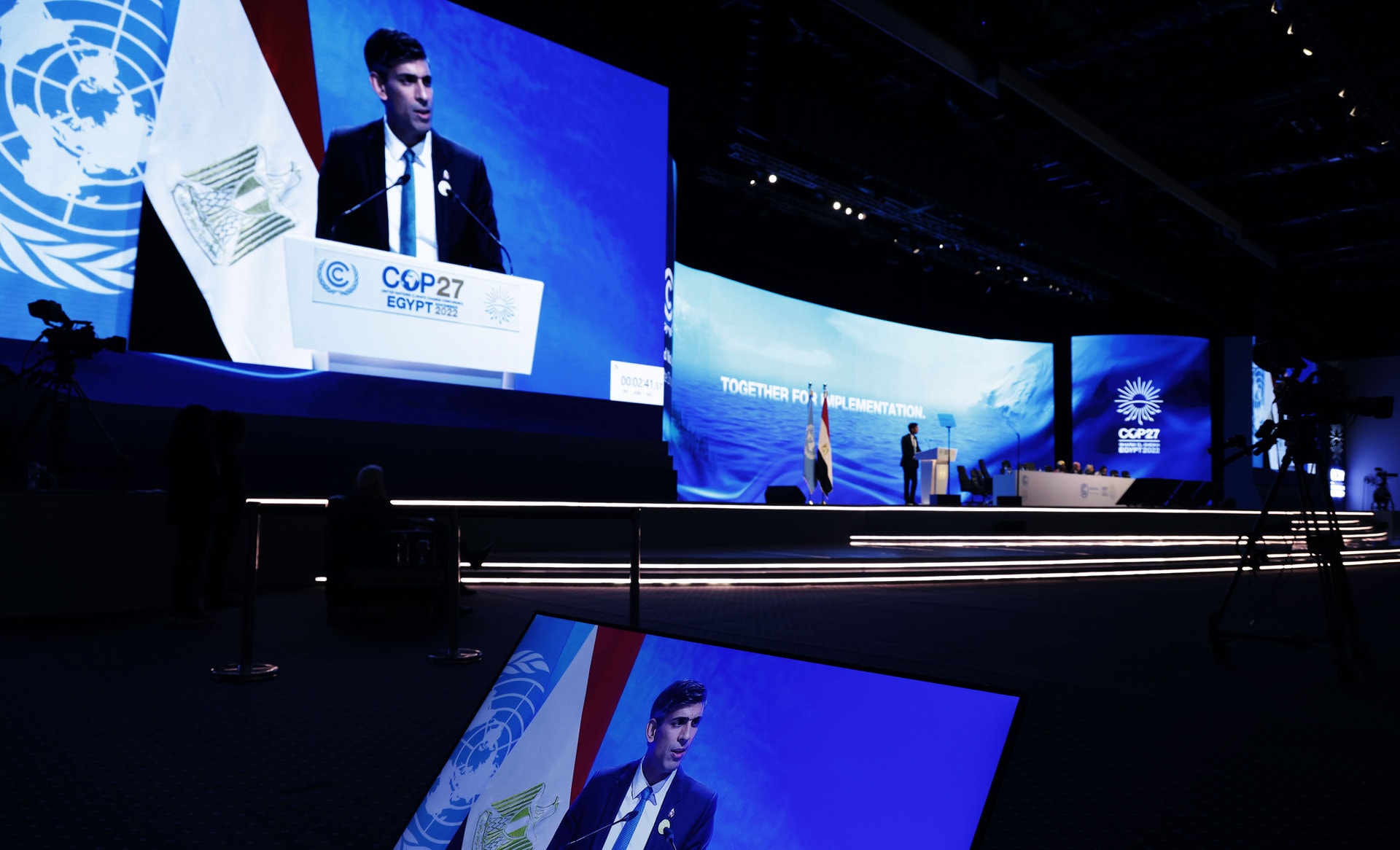COP would be more useful to the planet as a duller event.
At a time, when only 4% of the British public rate environmental issues as the “most important issue” we face, it is hard to fathom why so many British politicians feel obligated to jet off to Egypt to make empty speeches at the latest UN Conference on Climate Change (COP27). While the major agreement events, Kyoto, Copenhagen, and Paris, merit a world leader or two, and Boris Johnson was host last year, generally these summits have been technocratic affairs aimed at fine tuning progress.
The truth is that any serious deals are actually done well in advance of the conference itself, and most could be done without a conference at all. For example, rejigging the UK foreign aid budget to support more conservation and adaptation projects (helping poor countries deal with extreme weather and sea level changes), is a minor domestic decision linked to bilateral conversations between officials, signed off by a minister. It does not require the Prime Minister’s personal attention to decide whether spending £90m conserving the Congo rainforest is a more worthy project than funding the India space programme, or early stage R&D for a Nigerian battery factory.
What’s more, the overblown razzmatazz that bills COP27 as some kind of ‘Davos in the desert’ is likely to be counter-productive. It fuels a narrative of a carbon-intensive junket for global elites to fly in, tell the world they’re saving it, before jetting home again. It invites commentary on their ‘greenwashing, lying and cheating’ from green-teen-queen Greta Thunberg, amongst other anti-capitalist protesters. (On a side note, her thoughts on such matters would be profoundly less interesting had British politicians not spent so long venerating her in the build up to the last one.)
The excessive media focus also means that instead of that dull but important debate about aid priorities, we get an inane one about ‘climate reparations’ – a negative narrative that aligns climate action with punishing the West for industrialisation. Johnson is correct to point out that ‘the taxpayer in the developed world’ cannot be bound to sign endless cheques, particularly when we are enduring our own cost of living crisis. But he wouldn’t have even made those comments if Number 10 hadn’t endorsed the decision to put climate reparations on the agenda in the first place. If Sunak is now only attending COP27 to avoid being shown up by his former rival, he has not succeeded.
In any case, it’s entirely unclear what the UK hopes to achieve from attendance. Sunak’s statement endorsing ‘a global mission for new jobs and clean growth’ comes across as empty posing. Who is against either? The UK has a sensible ecological story to tell. Historically, using the proceeds of growth to improve both our environment and resilience to extreme weather events like the North Sea floods. Today, utilising the City’s economic power to finance climate solutions, which we then promote through trade. The story is not a messianic claim to global leadership or a doomsday appeal to urgency of targets that cannot be met. Rather it’s an approach based on pragmatic optimism, backed up by evidence of delivery, and small practical deals for mutual advantage.
The Prime Minister’s first instinct to skip COP and focus on fixing the public finances at home look far wiser in this context. Without sound money and lower debts the UK can’t afford to help anyone else. Without a resilient, affordable energy system rooted in realism about the pace of change from fossil fuel to low carbon, we’re hardly a good example. These issues have not yet been fixed, and travelling 2,400 miles to prove it will once again paint tackling climate change as something done to people, without their consent, by people whose own lifestyles do not reflect the mission they are preaching.
Click here to subscribe to our daily briefing – the best pieces from CapX and across the web.
CapX depends on the generosity of its readers. If you value what we do, please consider making a donation.


